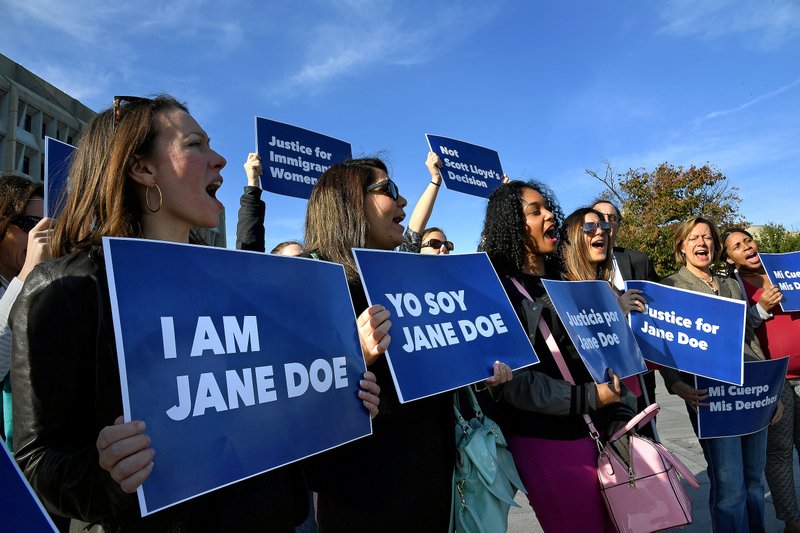WASHINGTON -- The Justice Department has formally withdrawn its appeals in a fast-moving case this week involving two teenagers who seek abortions but live in the U.S. illegally -- clearing the way for the teens to end their pregnancies.
Until Tuesday, the case challenging the presidential administration's policy of impeding access to abortion services for unaccompanied minors in custody had appeared to be on a fast track to the Supreme Court.
But government lawyers dropped their appeals at the high court and the U.S. Court of Appeals for the District of Columbia Circuit late Tuesday after obtaining new information about one of the teens in federal custody.
The government said in court filings that it had received information from the teen's home country that she is not a 17-year-old minor, but an adult at 19.
The 19-year-old, who is about 10 weeks pregnant, was quickly transferred to the Department of Homeland Security and released from government custody Tuesday night, according to court filings. Court papers do not name the teen, her home country or the state where she was being held.
Separately, the Justice Department chose not to oppose an earlier court order from Monday that allowed the second teen, who is 17, to end her pregnancy. The government did not disclose its reasons other than noting the "differing circumstances." The 17-year-old is close to 22 weeks pregnant.
In a statement, an attorney for the teenagers, Brigitte Amiri of the American Civil Liberties Union, said, "We are pleased that these two young women are able to finally get the care they need. But the government's policy is still in place. These two cases show how the government continues to abuse its power by denying abortion access."
The Department of Health and Human Services cares for unaccompanied minors taken into federal custody after illegally crossing the border. The agency's office of refugee resettlement has since March prohibited federally funded shelters housing the minors from taking any action that "facilitates" an abortion without approval from the director.
The government says in court filings that it "has strong and constitutionally legitimate interests in promoting its interest in life, in refusing to facilitate abortion, and in not providing incentives for pregnant minors to illegally cross the border to obtain elective abortions while in federal custody."
President Barack Obama's administration did not generally pay for abortions for teens in custody, but officials did not them from having the procedure at their own expense.
While the individual cases involving the two teens are now resolved, the larger challenge to the administration's new policy remains. U.S. District Judge Tanya Chutkan has been asked to decide whether the broader case over the policy can go forward on behalf of other pregnant immigrant minors in federal custody in recent years.
That challenge was initially filed by a Central American teenager who terminated her pregnancy in October after a favorable ruling from the full U.S. Court of Appeals for the D.C. Circuit.
In the legal maneuvers this week, the Justice Department had anticipated a similar result and had simultaneously asked the D.C. Circuit and the Supreme Court to halt Chutkan's order late Monday as it applied only to the 19-year-old.
That pre-emptive maneuver was a sign that the solicitor general's office was not taking any chances this time. In the similar case in October, lawyers for the other pregnant teen in custody moved quickly and were able to arrange an abortion for her before the Justice Department had time to step in and ask the high court to intervene.
A Section on 12/21/2017
